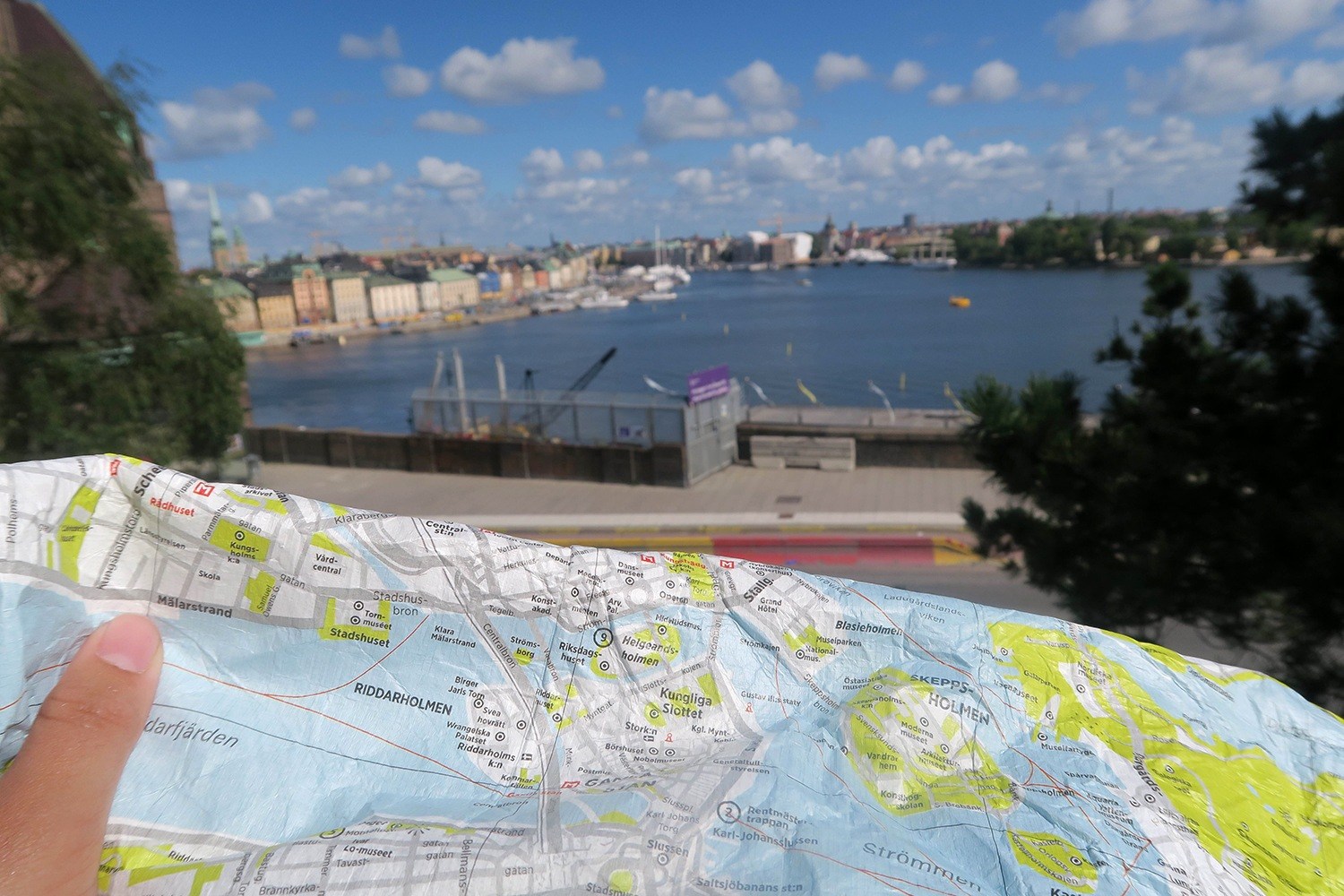One of the most frustrating aspects of traveling is being unable to communicate with people. Depending on where you travel, this can lead to irritating consequences. I'm a long, long way away from becoming a master of tongues myself, but I'm trying to get over my shyness and, in doing so, expand my cultural horizons. Here are a few tips on language learning for travelers, as told by someone who has spent far too long in language classes for her own good.

Table of Contents
Language Learning Tips
Memorize a few words and phrases that you'd use.
Knowing a few words in another language is a good start. Wherever I go, I make sure I write down how to say “hello,” “please,” and “thank you.” As you can imagine, this list can get quite extensive when backpacking through Europe. Having a shocking memory, it usually takes a few attempts for these to stick, but I get there in the end. I suggest taking it one step further and including some fully-formed sentences. Daring, I know. But the good news is that many introductory language courses are AI-aided now. For instance, the Langua AI language learning app helps you practice French, Italian, or Spanish with a “local.”
Think about what you like doing when traveling – or even in your daily life. What's relevant will prove worth learning for your future travels. For example, a friend of mine likes to make a point of learning how to order a beer and give a compliment in each country he visits. He frequents pubs in his country and is complimentary in English, so it's natural for him to transfer this into another language. I've tried to learn how to ask for drinks without straws in specific languages because I hate disposable plastics. Believe it or not, it sometimes works.

If you're traveling long-term, invest in a few classes.
If you're going to a region where a particular language is spoken prolifically, you'd be doing yourself a real disservice by not familiarizing yourself with the language in advance. I've personally had the most success with classes, although it can be hard to find one that works for you. Luckily, we live in an age of online courses; you can get a good idea of what's available here.
You'll want to understand phrases you'd use while traveling—knowing things like “This is a black blouse” and “That dog looks sad” will only get you so far. Either way, I don't think classes hurt – a crash course beginner's class will give you the fundamental blocks to build upon on your travels.
Here's a thought—why not look at taking some language classes in the country itself? Imagine basing yourself in Bishkek, Kyrgyzstan, and brushing up on your Russian before traveling through Central Asia. Or learning some German in Berlin for a month while you experience what it's like to live in the city itself? Many adventures in language learning await, so long as you are willing to take the plunge.
Be brave. Speak up and out.
I don't know about you, but I'm a terrible mumbler and can be a bit self-conscious, which has severely affected my ability to learn a language. Half the time, I know what I'm trying to say, but I'm so scared of getting it wrong and “hurting someone's feelings” that I can't seem to cross the line. It's silly. I hardly imagine anyone will be offended because I tried to learn their language and communicate with them.
I know I get worried that they'll think I do speak their language and begin talking to me. Then, all I have to do is shrug and say, “I'm sorry. I don't understand what you're saying.” It isn't exactly scary stuff. It's pointless to learn words and phrases and never have a crack at saying them out loud. So, give it a go. You might surprise yourself by discovering that you absorbed more of the language than you initially thought, which could only be a good thing.

Don't discount languages because they're “hard” or not fashionable.
It might seem “pointless” to learn the Thai language, but what about if you're living in Thailand, with no immediate plans to leave? Likewise, you might decide to learn Spanish because you think it's more practical, yet you think Arabic is the most beautiful language in the world.
Learning a language is a significant and challenging commitment. It needs to be something you'll want to do, and it'll help you greatly if you hear it daily. Even knowing a few foreign words here and there will make a difference in your travels and boost your overall self-confidence.
LC is an ex-expat who is currently re-exploring her home country of Australia. Follow her adventures at home and abroad via her blog Birdgehls, where she writes about travel, expat life, gushes on about various animals and bemoans her often futile attempts to go completely green. Or, you can look her up on Facebook.
Planning a trip? Go Backpacking recommends:
- G Adventures for small group tours.
- Hostelworld for booking hostels.

Greg Kennon
Tuesday 7th of February 2017
Learning the local language can not only be life saving (literally), but I have found that it increases your experience exponentially.
LC Haughey
Wednesday 15th of February 2017
Absolutely, definitely helps enrich an experience.
A friend of mine got really, really ill on a trip to Cuba and had she not had a Spanish speaker with her, she could have been in big trouble...
Jennifer Cooper
Monday 30th of January 2017
We always try and at least learn a couple of sentances / words in the local language so for example we can ask for accommodation or where the toilet is! An app can be helpful as it will help you pronounce words correctly.
LC Haughey
Monday 30th of January 2017
It's definitely a good habit to get into!